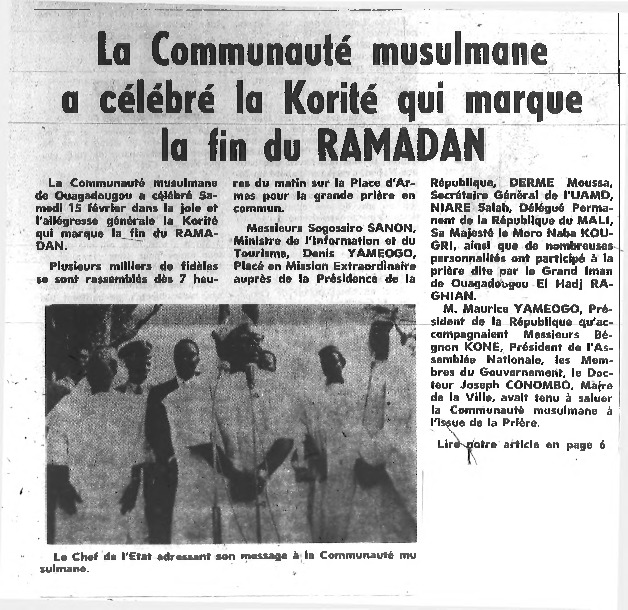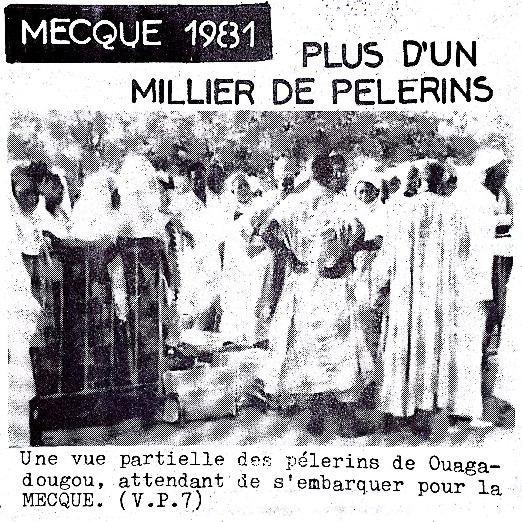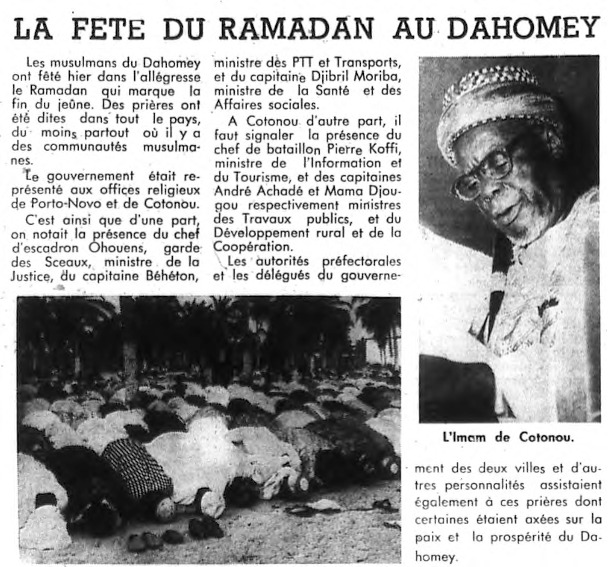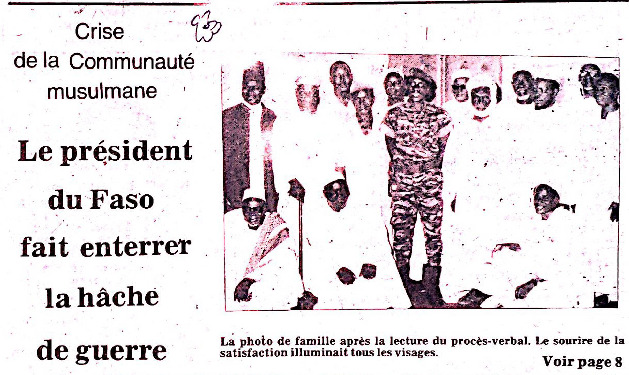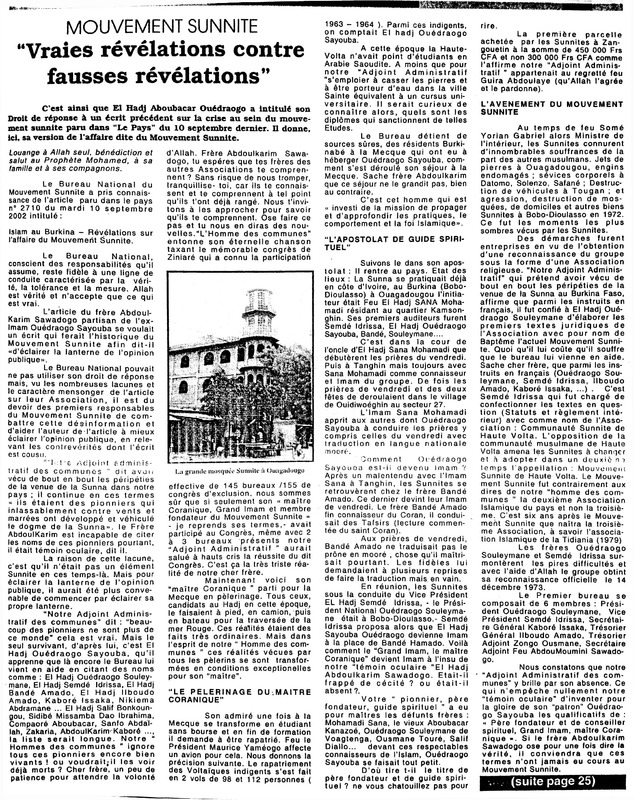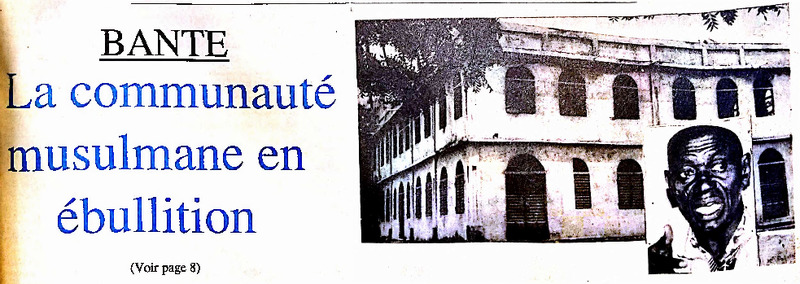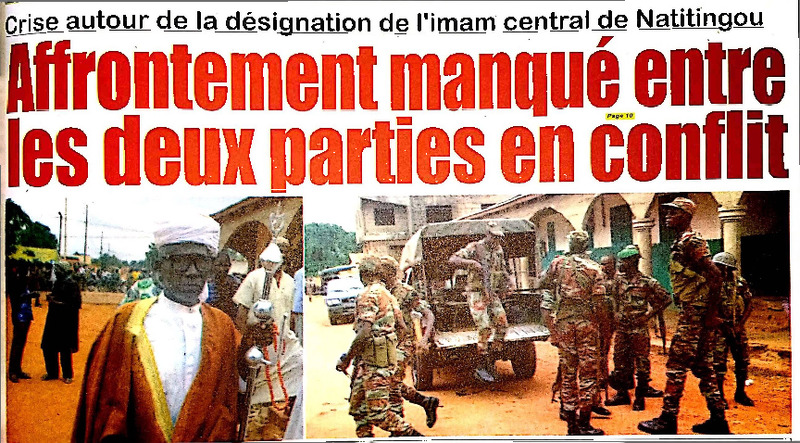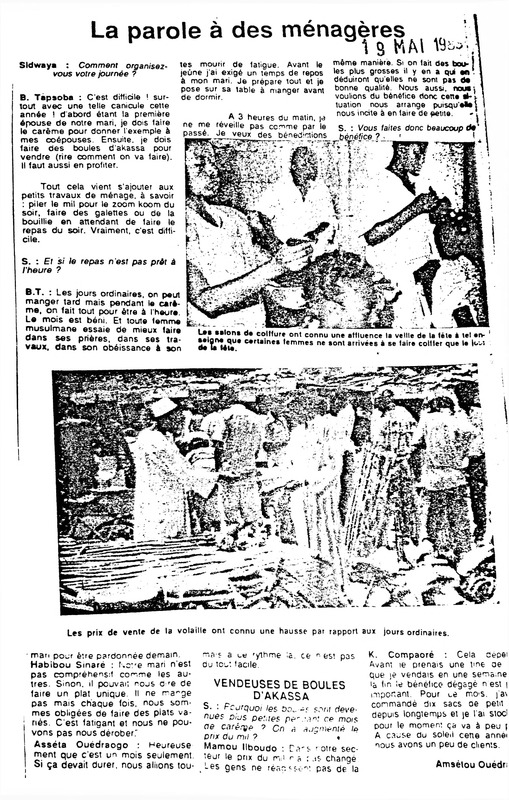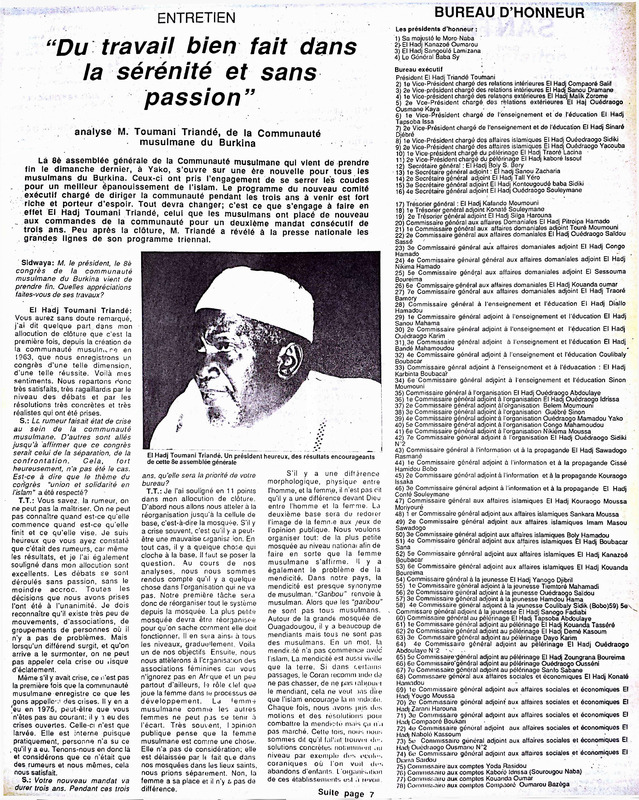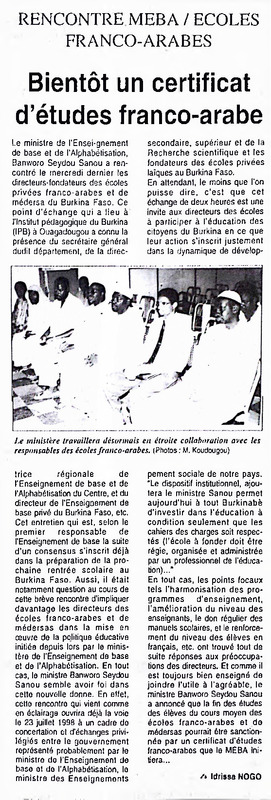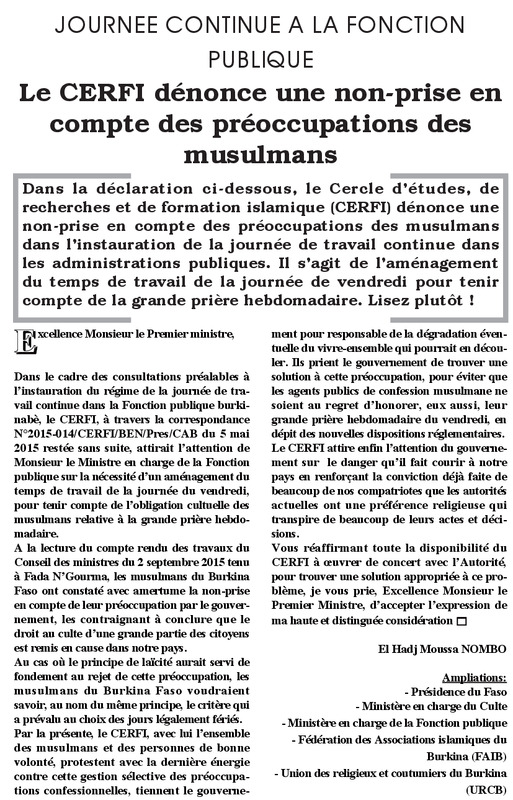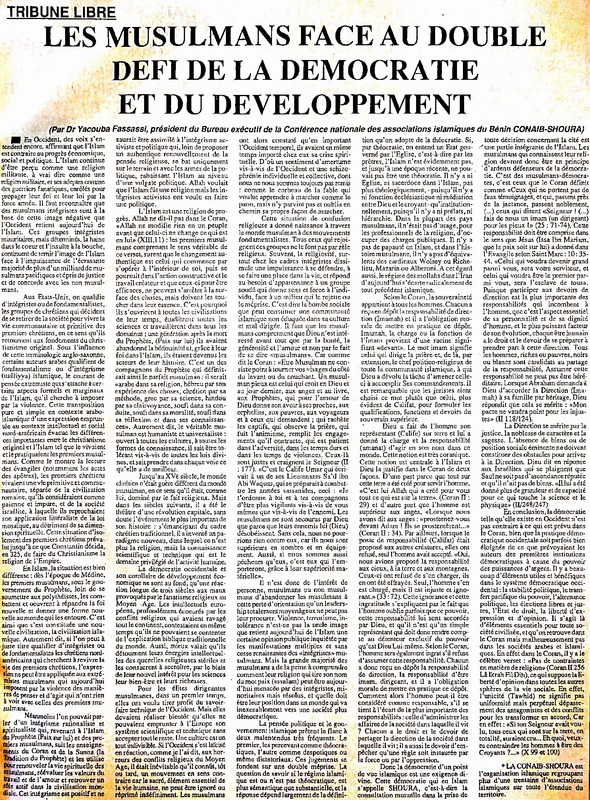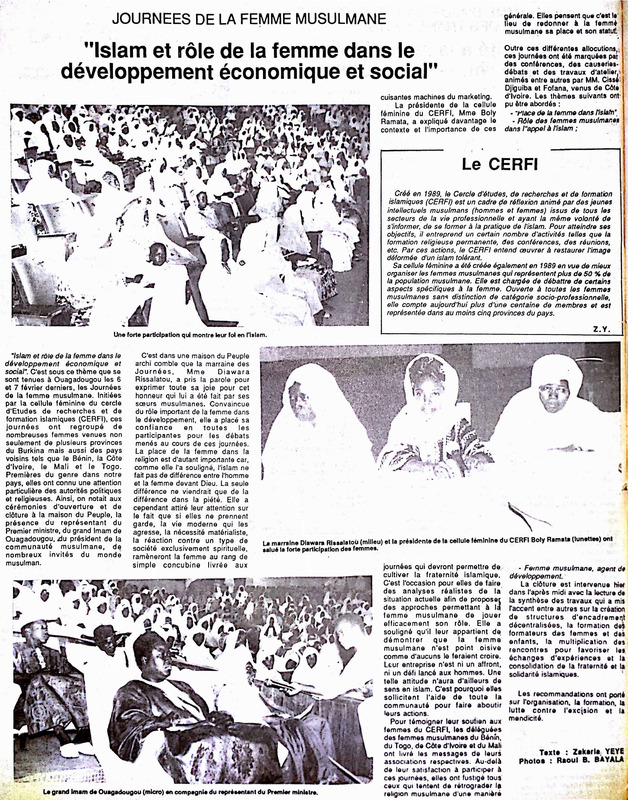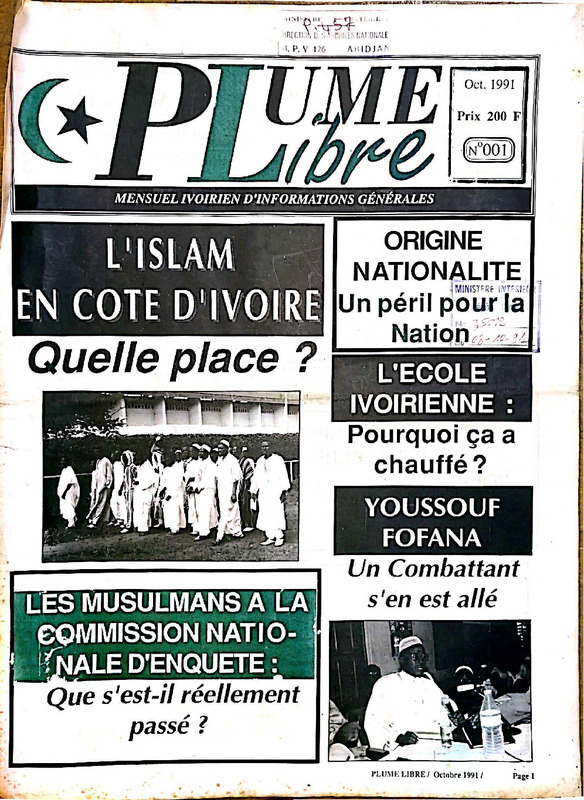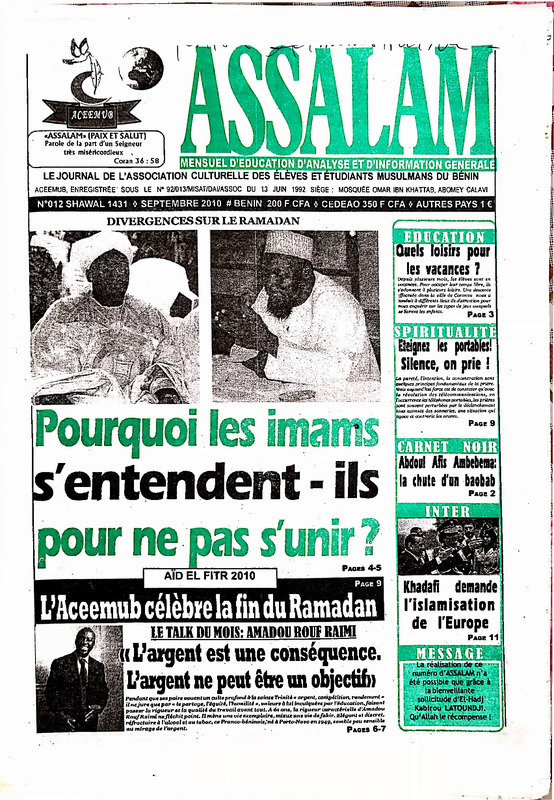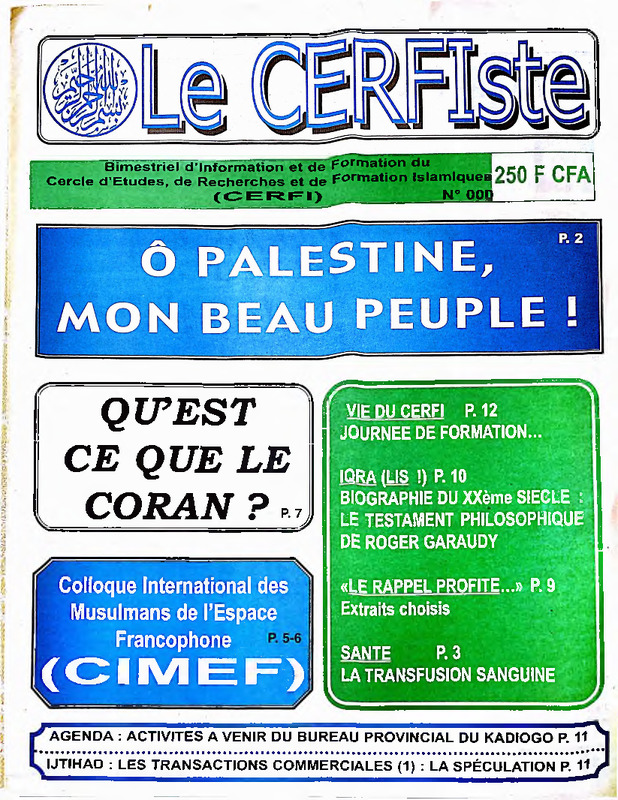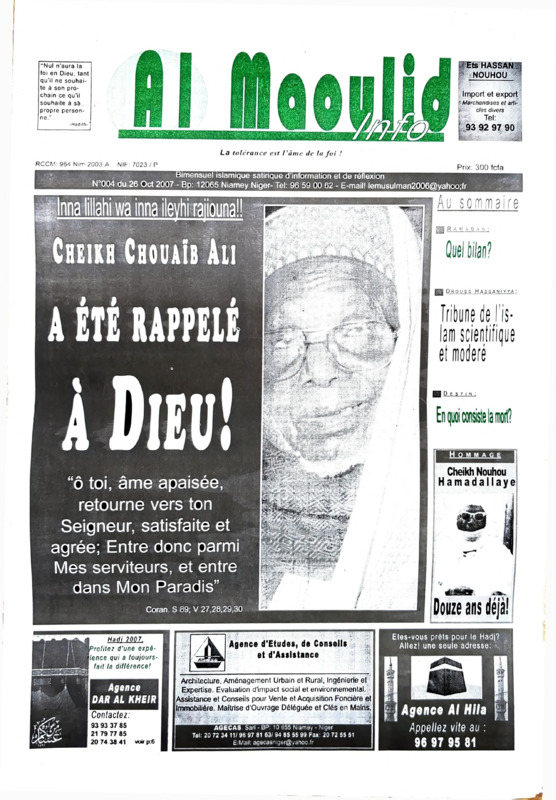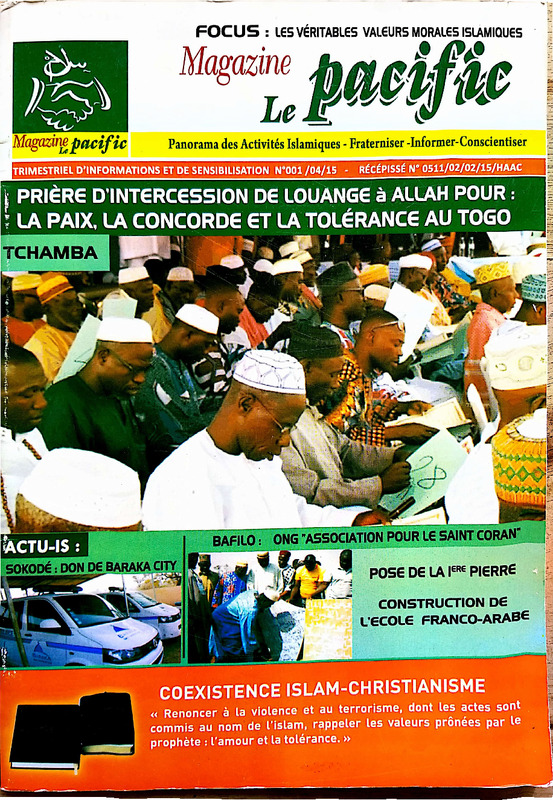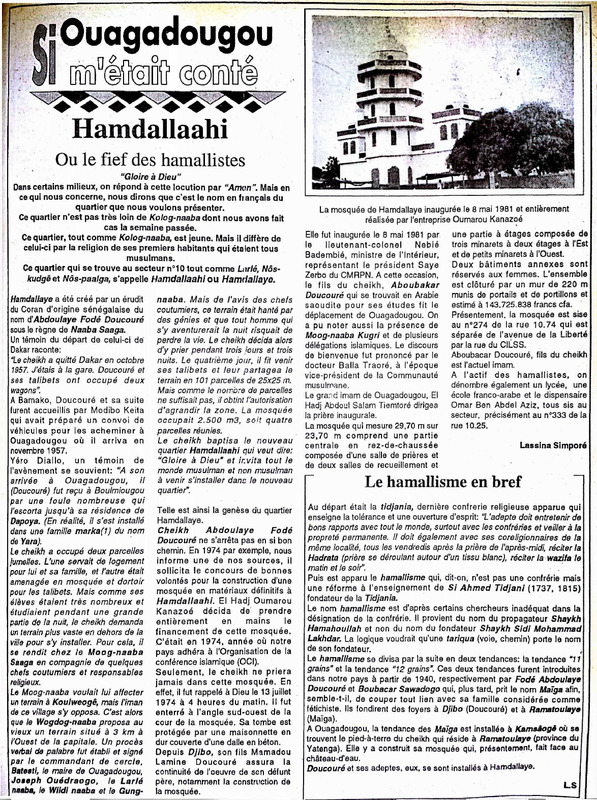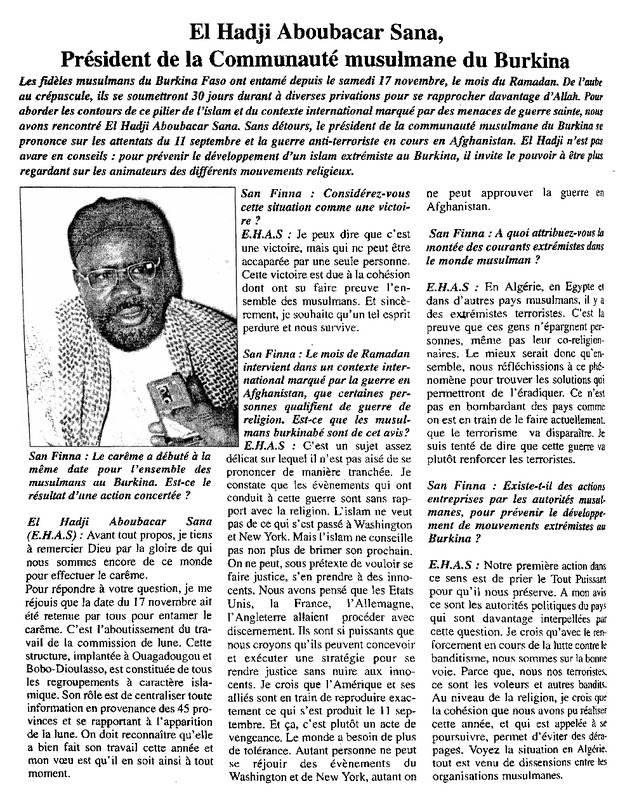Why newspapers?
While many digitisation initiatives in African studies have prioritised manuscripts—particularly those from Timbuktu—this focus risks overlooking the rich print culture of West Africa. IWAC fills this gap by preserving newspapers and Islamic publications: essential but undervalued sources for understanding contemporary Islam in the region.
A living record of Muslim communities
Since the 1970s, the mainstream press has provided sustained coverage of Muslim life in the region. Early reporting focused mainly on major religious celebrations (Eid al-Adha, Eid el-Fitr), the pilgrimage to Mecca, the inauguration of new mosques, or the passing of religious leaders.
From the late 1980s, coverage expanded dramatically. Political liberalisation and the growth of Islamic associations prompted journalists to document community activities, internal debates, leadership dynamics, and the increasingly visible public presence of Muslims. The result is a rich, contemporaneous record that captures how Muslim communities have evolved over six decades.
Why newspapers matter
Unlike oral histories, which are vital but vulnerable to memory lapses and the loss of witnesses, newspapers provide fixed chronological anchors: precise dates, direct quotations, and immediate reactions to contested events. They offer both an inside and outside perspective on the activities of various Muslim individuals and groups—a dual viewpoint that enriches historical understanding.
This journalistic record illuminates many dimensions of Islam in West Africa:
- Religious practices and theological debates: From controversies over Mawlid celebrations to the organisation of the Hajj—including the logistical, financial, and political debates surrounding pilgrimage management
- Islamic diversity: Coverage of various currents within Islam, including movements like the Ahmadiyya, their social initiatives, interfaith activities, and relations with other Muslim communities
- State-religion relations: Debates on secularism, Islamic education, reforms to the family code, and political participation
- Social issues: Women's rights, youth engagement, family planning, begging, and interfaith dialogue
- Humanitarian action and Islamic economics: The growing role of Islamic NGOs and associations in social welfare, as well as explorations of Islamic finance as an alternative economic model
- Community organisation: The activities of associations, leadership transitions, internal tensions, and reconciliation efforts
- Transnational connections: Diplomatic visits and cooperation with Muslim-majority countries, engagement with international bodies like the Organisation of Islamic Cooperation and the Islamic Development Bank, and local responses to global events affecting Muslims
- Security concerns: Terrorism, radicalisation, and Muslim community responses to extremism
Voices and power dynamics
The press gives direct access to the speeches and positions of Muslim leaders on religious, social, and political issues. Testimonies and interviews with imams, association presidents, and "ordinary" believers reveal how communities understand their own experience.
Newspapers also expose power dynamics. Comparing pro-government outlets with opposition press reveals how state-aligned media grant privileged coverage to Muslim groups close to power while marginalising movements and leaders suspected of opposition sympathies. In Burkina Faso, for instance, young Francophone "Muslim intellectuals" eclipsed traditional community spokespersons during the transition period following the fall of President Blaise Compaoré in October 2014. The press reveals who gains media visibility—and who is marginalised.
Islamic publications: Voices from within
Islamic publications—newsletters, magazines, and pamphlets produced by associations, mosques, and educational institutions—complement external journalism. They articulate community concerns, theological positions, and organisational strategies often absent from mainstream media.
Because these materials circulate through small print runs and informal networks, they are at acute risk of disappearing. Digitising them is urgent.
Born-digital content: Preserving the ephemeral
Contemporary Islamic discourse has migrated online. Websites, social media posts, and YouTube channels now serve as primary venues for religious instruction, mobilisation, and debate. Yet digital content in sub-Saharan Africa is particularly transient—platforms disappear and URLs break. Research shows that 38% of webpages become inaccessible within a decade. IWAC's systematic preservation of over 4,000 online documents through the Wayback Machine captures a fragile but essential record of 21st-century West African Islam.
A note on languages
Most newspaper articles and Islamic publications in this collection are in French, reflecting the perspective of Western-educated Muslims who followed French-speaking, secular, or Christian school curricula.
This means the collection offers less direct access to Arabisants—prominent Muslim leaders trained in madrasas and major Islamic universities who use Arabic or national languages such as Mooré, Dioula, or Fulfulde to reach non-French-speaking audiences. However, the French-language press regularly gives voice to Arabic speakers, and the collection's audiovisual materials include recordings in Hausa and Arabic.

